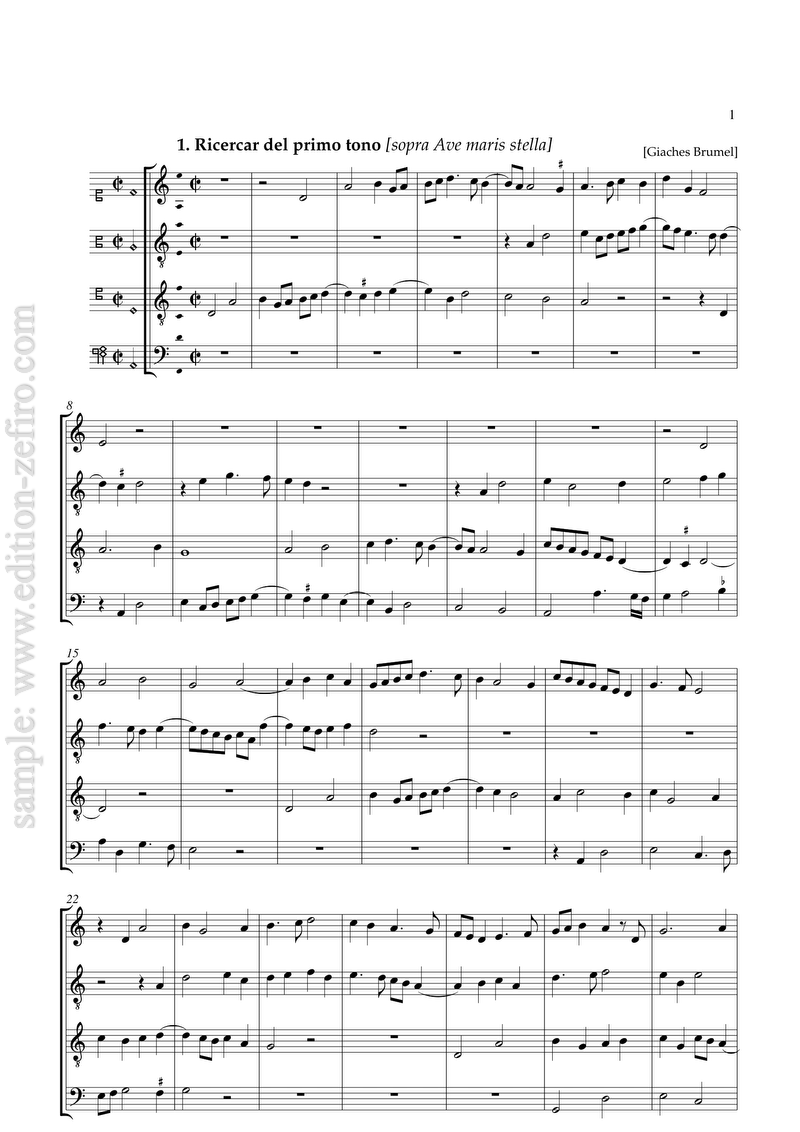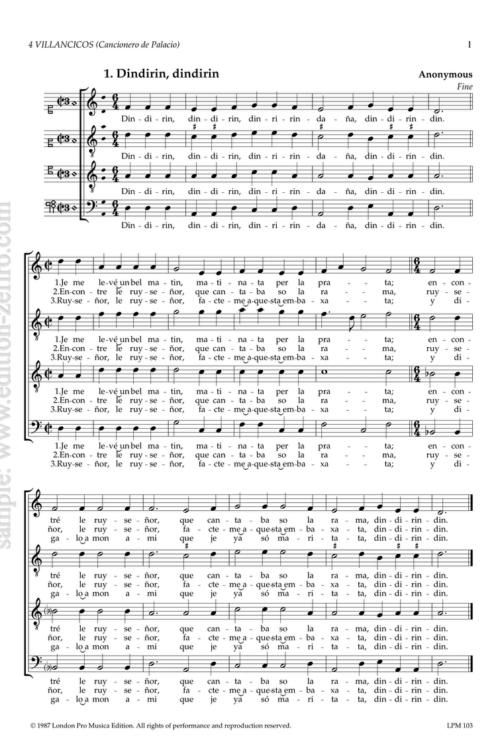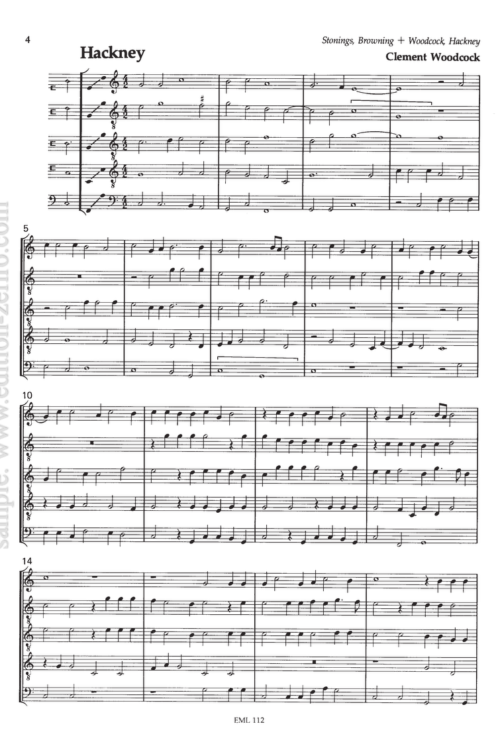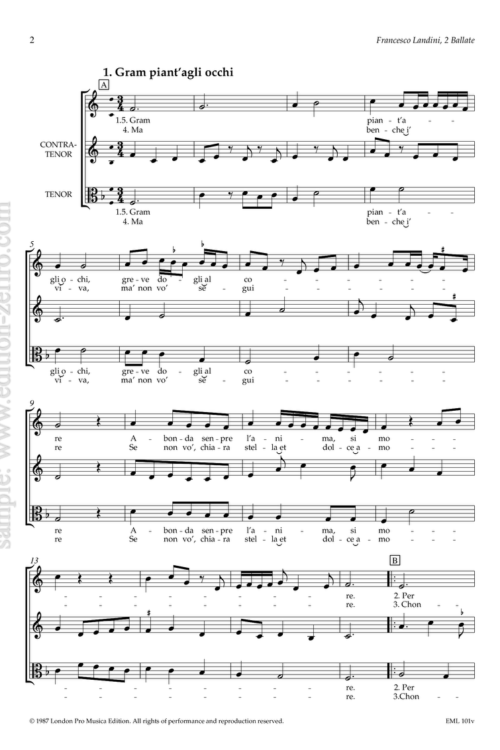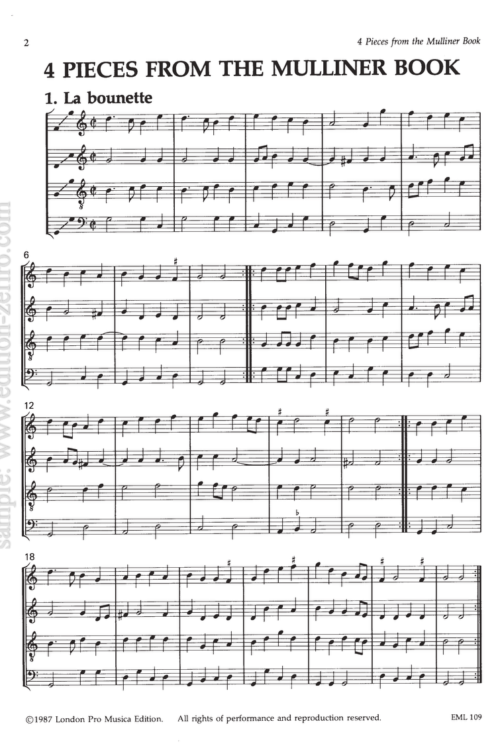These two ricercari on the plainsong hymn Ave maris stella are taken from the Bourdeney Codex (Paris, Bibliothèque Nationale, Rés. Vma mus. 851), a manuscript written in the second half of the sixteenth century in northern Italy, probably in the region around Ravenna. The Bourdeney Codex is a collection of over 400 pieces written in score. The majority of the pieces are motets, but there is a group of rather substantial ricercars, most of which are probably by Giaches Brumel, who worked in Ferrara as an organist from 1532 to his death in 1564. For much of this time he was working under the great Cipriano de Rore, and in fact the Bourdeney Codex contains a five-part ricercar on that composer’s madrigal Canti mentre ch’arsi.
The ricercari in Bourdeney that are probably by Brumel are notable for the way the composer develops elements from his cantus firmus; certainly those printed here are highly polished treatments of the given melody. The same collection also contains a ricercar on the ubiquitous La Sol Fa Re Mi.
Jacques Brunel (Brumel, Brumello, Brunello, Giaches Brumel, etc.) (died 1564) was a French organist and composer, active mostly in Italy.
From 1532 until 1564 a Brunel worked as organist at the Este chapel in Ferrara, where in 1547–1558 he served under the famous composer Cipriano de Rore. Between 1543 and 1559 Brunel received money for the keep of a horse, which he needed to travel to oversee the Este chapels at Modena and Reggio nell’Emilia. At the request of Guidobaldo II della Rovere, Duke of Urbino, Brunel also stayed in Pesaro and Urbino in the summer of 1534, and later in 1561–63. The last references to him in the archives are from early 1564: he was last paid in March, and had died by May. He was succeeded by his son Virginio Brunel, who later became organist at the Basilica of San Vitale.


